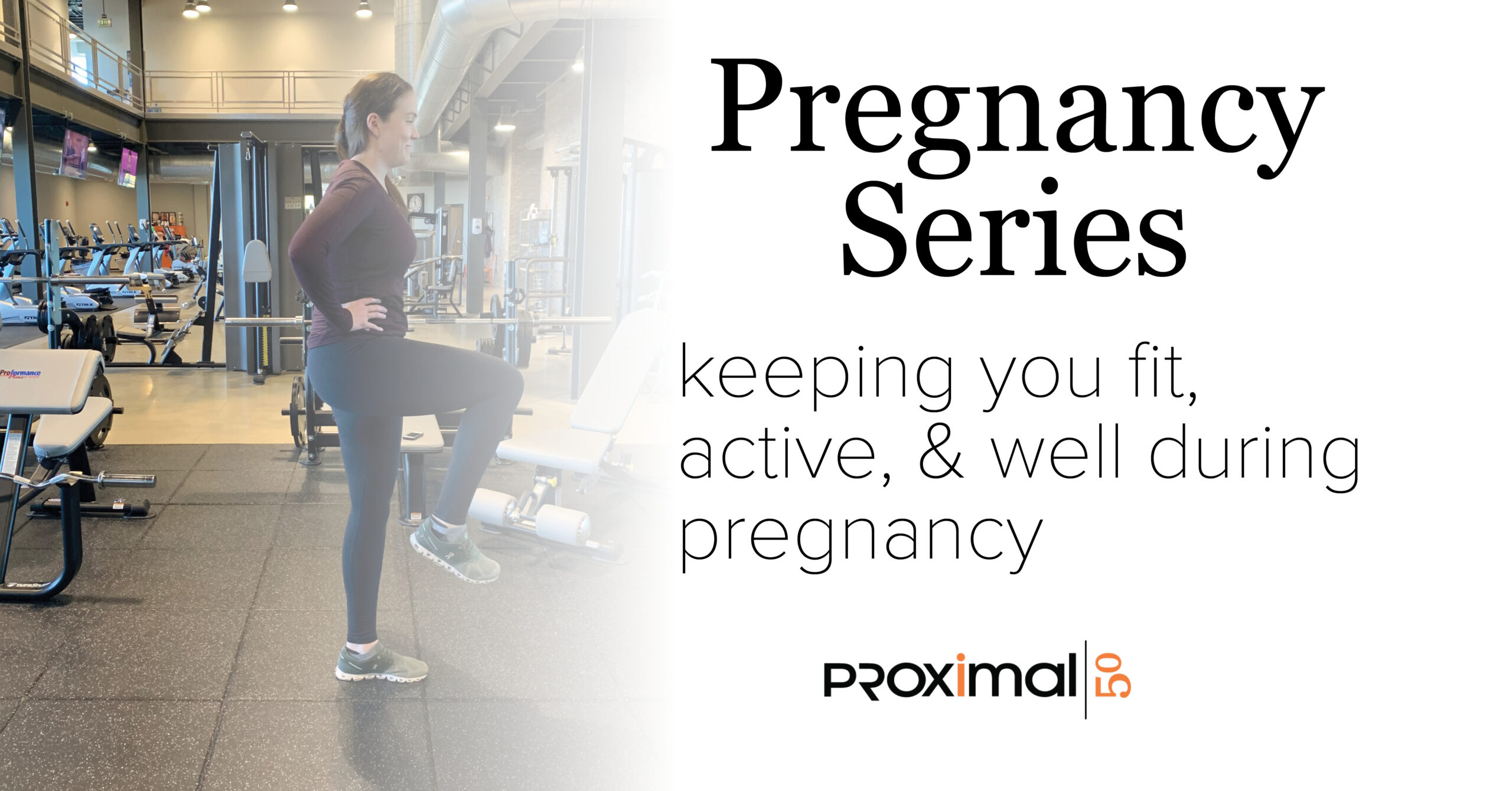Pregnancy Series: First Trimester Nutrition & Morning Sickness
You woke up with morning sickness.
You knew this would happen, but you had no idea it would be this bad. And it’s bad, Vanessa, P50’s Registered Dietitian knows first hand 😉
Whether it’s nausea, vomiting, or a comb of both – it’s not fun and it makes it hard to eat, let alone eat well.
According to a Journal published in 2018, titled The Effect of Young Coconut Water against Morning Sickness among Women in the First Trimester of Pregnancy, by Ariestini and Purnomo, morning sickness is caused by the influence of pregnancy hormones on the gut.
The article states: “The slowing motility of the gastric muscles due to the influence of pregnancy hormones causes an increase in the amount of stomach acid that irritates the gastric mucosa. Pregnant women experience nausea, vomiting, bloating, frequent burping, sour taste, bitterness, loss of appetite, and discomfort which causes the loss of fluids and some essential minerals, such as sodium, potassium, calcium, and magnesium.”!
During the first trimester, you don’t need much more in terms of calories compared to what you needed before you became pregnant. That being said, you need to be able to keep the food you’re ingesting down. It is more important to focus on foods you can actually stomach rather than nutrition itself. Making sure you take a quality prenatal vitamin is essential, ensuring you’re getting in your daily dose of folate and other important vitamins and minerals.
Then, once the nausea subsides you can focus on eating a more balanced, nutrient-dense diet. (More on what that looks like coming soon!)
So, what are some foods that may be better tolerated while experiencing nausea? The Nutrition Care Manual suggests keeping foods relatively bland, and keeping snacks like Saltine crackers and pretzels on deck at all times. They also recommend the following tips:
- Try to eat 6 small meals/snacks during the day. Small meals may be easier to tolerate than large meals.
- Keep easy to digest foods, such as crackers and pretzels, with you during the day and at your bedside. You may even try eating a few crackers before getting out of bed in the morning.
- Drink water or other beverages (caffeine-free) between meals.
- Eating ginger may improve nausea.
- Lower-fat foods are easier to digest. High-fat foods can make nausea worse. (Nutrition Care Manual, 2019)
During your bouts of morning sickness, limit foods that could intensify your morning sickness. Foods that could potentially be raw or undercooked, such as undercooked meats are smart to avoid. Additionally, if you have a lactose intolerance or sensitivity, consuming dairy foods may make your symptoms even worse. Try to limit heartburn causing caffeine, unpasteurized cider and juices. These foods may cause GI distress or acid reflux, which will only enhance your symptoms.
If you feel that your morning sickness is only getting worse as time goes on, please discuss this with your doctor or Registered Dietitian.
The next question that often comes up is “how is the baby getting enough nutrients if I am having so much nausea that I can barely keep any food down and I’m living off of crackers.”
Well, the good news is our bodies are truly amazing! When we are unable to provide our bodies with nutrition, the body depends largely on nutrient stores, provided that we were adequately nourished prior to becoming pregnant. This is one reason why good nutrition and exercise are important BEFORE you get pregnant!
Nausea and vomiting does not usually harm the fetus, only in the most severe cases can it begin to alter the growth of the baby. It is reassuring to think your body protects the health of your baby, but this is not a time to forget about good nutrition all together. It is still best to be mindful, understand what is happening is only temporary and that you and baby will overcome this!
Some take-away tips to manage morning sickness:
- Keep up with your prenatal vitamin regime. Nausea is one of the reasons a prenatal vitamin is recommended. It serves as an insurance policy that you are getting the nutrients you need. Sometimes prenatal vitamins can contribute to the feeling of nausea if this is the case, try switching to a different kind or even a powder or gummy.
- Make sure you are sipping water throughout the day. Adequate fluid intake during pregnancy is vitally important. Water is crucial. If you do end up vomiting, replenishing electrolytes is critical, too. My advice is to carry a large water bottle with you everywhere you go.
- Aim to get protein in at breakfast. Protein at breakfast gets your day off to a great start. This is especially important if your nausea doesn’t hit until later in the day and you are actually hungry in the morning. If you have actual “morning” sickness, try plain cashews or almonds when you first wake up. This is also a time when a lot of people opt for smoothies or protein shakes.
- Eat whatever food you can keep down. Most of the time this is plain carbs such as toast, chips, pretzels, or noodles. If the nausea is REALLY bad, just eat something then focus on proper nutrition when your appetite returns. One food choice does not and will not define your prenatal diet.
Vanessa Lennick, RDN, LRD is a Registered Dietitian at Proximal50 in Bismarck, ND. Vanessa can be reached at vanessa.lennick@proximal50.com and is available for virtual and in-person appointments.


